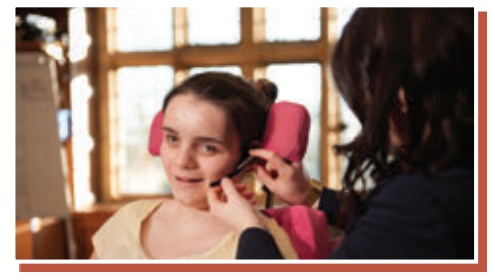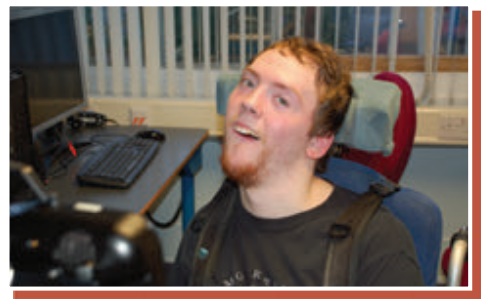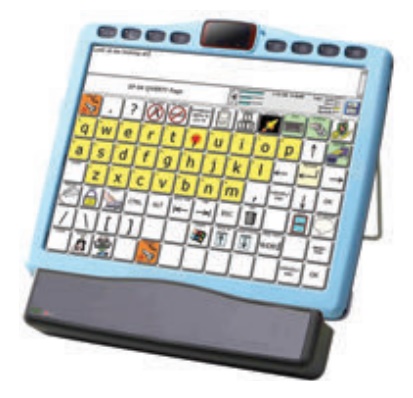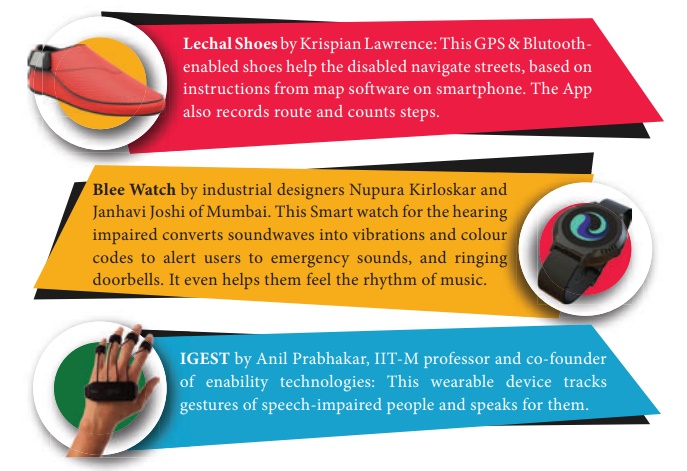Prose - Tech Bloomers | 10th English: UNIT 5 : Prose: Tech Bloomers
Chapter: 10th English: UNIT 5 : Prose: Tech Bloomers
Tech Bloomers
Prose
Tech Bloomers
This lesson talks
about the use of technology by a normal person and in empowering the disabled
to do their day to day chores of life – to travel, to communicate, to learn, to
do business and to live in comfort. Alisha and David’s life has changed with
the use of technology. Technology impacts the environment, people and the
society as a whole. The way we use technology determines if its impacts are
positive to the society or negative.
Have you ever thought that your refrigerator can order stuff on
its own? Well, anything which is below a pre-defined limit or below certain
threshold, can be self-ordered by the appliance. Your refrigerator can directly
link to the ecommerce site and order for milk if it is about to be exhausted.
Consumable products such as ink cartridges may be capable of self -ordering
replacements when the current level falls below a certain threshold.
Have you ever wished you were better informed? Managing
entertainment and home appliances by voice commands or by swapping the finger
is a reality now. Getting bored by the program you watch on TV? Just tell your
smart TV that you want to view your social feed instead. If you are struck in a
traffic jam, just let your kettle make some tea for you which you can sip, piping
hot, the moment you reach home. Your entire water and energy management can be
taken care by automating all the activities.
Technology has not only made a normal person’s life easier but it
is also a boon to citizens with special needs. India is home to 2.7 crore
people living with one or the other kind of disability. According to the 2011
Census, 2.21 percent of India’s population is disabled. Unlike the developed
world, India’s disabled are deprived by attitudinal barriers as they continue
to grapple with the challenges of
access, acceptance and inclusion.
a. What is the future of technology?
b. How many people in India suffer with disability?
Alisha says, “I would probably still have done it because I want
everyone to know the difference technology has made in my life. But it would
have been frustrating and difficult.”

“I have cerebral palsy and I can’t physically type as fast as I think or anywhere near.
But right now, that’s what I’m doing. I bet you’re wondering how!
I am using a piece of technology called Dragon Dictate. I speak, and the words
appear on my screen and then I can print them out. It’s made a huge difference
to me. It’s made me achieve things I only dreamt of.
I used to have a teacher, she’s passed away now and one day she
said to me. ‘You’re going to do your Maths GCSE (General Certificate of
Secondary Education).’ I said, ‘No I’m not. Don’t be silly.’ I didn’t
think I could do anything like that. Studying was so difficult because I had to
rely on someone to type everything into a computer for me.
But that’s changed now. I can do it myself with my voice.
Kim, who is the Assistive Technologist at my school, introduced me to Dragon Dictate
and it has opened up the world to me.
Kim showed me how to train it to understand my voice, it took a
few hours. Now I use it in class and at home as well. It has made me more
independent and I am now able to study on my own. So now I’m doing
my Maths GCSE. I know my teacher will be proud of me.
I never thought I’d be able to do one GCSE in my life, but I’m
going to do two. And I feel like I want to push myself even further. Kim says
technology can help me do that, it is opening up the world for young disabled
people like me.
There are many different types of technology that can help a young
disabled person become independent. For example, if someone has very limited
movement they can control a computer screen with Eye Gaze. That means when they’re reading they can move
from page to page using the pupils of their eyes. They don’t need to press a
button or anything.
Just one person, Kim, works with all 42 students here at my school
and helps us use technology in different ways. She’s amazing. I don’t know what
we’d do without her we’d lose out on so many opportunities.
It has opened up the world to me.
c. Who is Kim?
d. How does Kim help Alisha?
21 - year - old David says, “Technology is very important because
it enables me to communicate and be independent, which gives me freedom.”

For verbal communication, David uses a Liberator Communication
Device, which he controls with
his eye movements. It has a Bluetooth adaptor, so it lets him use any PC or Mac
by sending commands through the Liberator.
“It was a great feeling when I learnt to use it, it took me a
couple of weeks. Communicating with people was very difficult
before.”
He has an ACTIV controller also in the headrest of his chair in
his bedroom, which means he can control his TV, Blu-Ray and music players.
David was born with Athetoid Cerebral Palsy and attends a
specialist school and college. He has been using a high tech communication aid
since he was eight years old and has been interested in AAC(Augmentative and
Alternative Communication) and technology ever since!
When David first started out with AAC, he used a head switch to
access his AAC device running a page - based system, which took lots of
navigation and required a lot of effort combined with switching.
He now uses an ECO2 with ECO point, making his selections with a
foot switch once he has fixed his gaze on the icon that is required. He has a
smaller communication aid. It has been mounted on his walker. It is essential
that much of his spare time is spent in the performing arts! David is also a
keen sportsman, regularly playing football, boccia, hockey and baseball. He is
a sports leader and uses his ECO2 linked to an interactive white board to teach
PE lessons.

David has 144 icons on the screen that he uses with ECO point Eye
Gaze. When David first tried this access method, his response was “I like it,
it makes me faster, when can I have one?” Now David uses his ECO2 and ECO point
to access the curriculum, study for his GCSE, order food and communicate while
he is in restaurants and argue with his brother. You name it, David can
communicate it!
David will now use his ECO2 to speak in complete sentences with
correct syntax. It has increased the number of words he uses meaningfully and
comment socially using the language of his peers, thereby becoming a confident
and competent communicator. David has recently been working on idioms with his
SLT, his latest being ”Mum has got a lot on her plate!” David is also an
advocate to other students who use AAC and shows them how easy it is to
communicate using the AC method.
He controls his PlayStation with a bespoke switch system, drives
his electric wheelchair with head switches and uses the ECOpoint Eye Gaze
system to communicate, access the computer to check on how the Chelsea football
team is doing and send and receive text messages. When he is at home he also
plays MP3 on his ECO2 from morning till night.
David has recently been selected to travel to Brazil to work with
the Olympic opening ceremony team as part of the Remix Drama Group.
e. Why is technology
important according to David?
f. Which instrument does David control with his eye movements?
g. What devices help David to move from one place to other?
INDIAN INNOVATIONS

I guess technology makes your life easier. Maybe it means you can
keep in touch with your family, you can talk to and even see relatives who live
far away. Well, Kim has shown me that technology can do even more for young
disabled people like me. It can help us make friends, communicate and control
our environment (like turning the lights on and out). It can help us study, get
qualifications and find opportunities for work. It can make us confident and
independent.
World renowned physicist Stephen Hawking is probably the best
example of how Assistive Technology has helped a talented mind overcome physical impairments and
contribute productively to the world. So we can now look forward to a more
inclusive way of learning, instead of the cloistered existence that most differently- abled learners
had to face in the past. Newer technology allows differently- abled learners to
learn with their peers as well as contribute fruitfully to the collaborative process of learning. This is
indeed the new era of learning – truly learning for all.

Related Topics